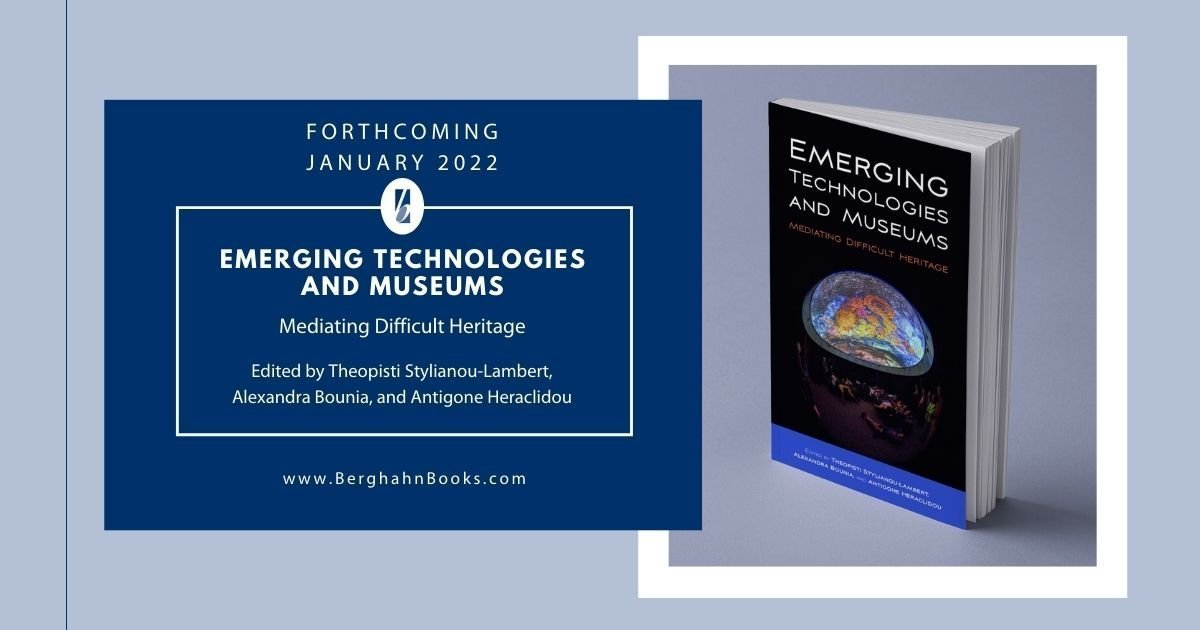This collective volume, edited by Theopisti Stylianou-Lambert, Alexandra Bounia and Antigone Heraclidou, focuses on theoretical approaches and case studies that demonstrate how emerging technologies can display, reveal and negotiate difficult, dissonant, negative or undesirable heritage. In particular, papers included in the volume examine how emerging technologies in museums have the potential to reveal unheard or silenced stories, challenge preconceptions, encourage emotional responses, introduce the unexpected, and overall provide alternative experiences.
By emerging technologies, we refer to contemporary advances and innovations in technology such as virtual reality, augmented reality, mixed reality, holograms, artificial intelligence, gamification, smart systems, etc. The volume includes eleven chapters written by authors of different backgrounds and with different expertise. Among them there are academics in the fields of digital humanities, digital museology, film and cyberspaces, museum studies, art theory and history and cultural technology; artists, media artists, architects, and museum professionals; and researchers in the fields of history, informatics and cultural technology. The 11 chapters cover a wide geographical area with the authors coming from Australia, Canada, Cyprus, Germany, Greece, Italy, Sweden, the UK and the USA. The volume will be published by Berghahn Books in 2022.

